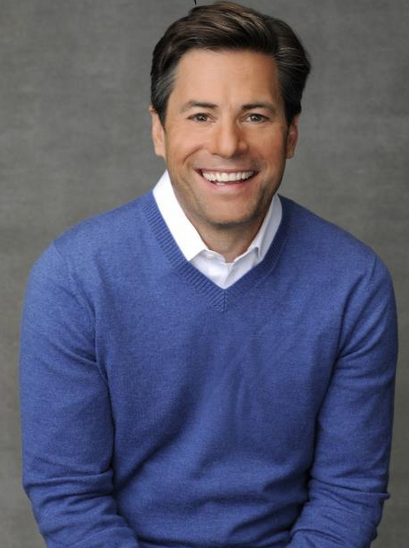J. R. Moehringer on the Art of the Steal

ABOVE: J. R. MOEHRINGER. IMAGE COURTESY OF ABC PHOTOGRAPHY/DONNA SVENNEVIK
Willie Sutton, one of the most famous bank robbers of his time, was almost forgotten until J. R. Moehringer’s biographical novel Sutton (Hyperion), a harrowing, haunting tale of the late criminal’s life. Born in 1901 in the Irish slums of Brooklyn, Sutton grew up in an age when banks were out of control with greed—a time when economic crises ruined lives across America. Sutton, who smoothly stormed banks and escaped maximum-security prisons without firing a single shot, all with charming flair, captured the public imagination. Yet Moehringer delves behind the debonair mug shots and sly newspaper quotes to reveal a figure with regrets and lost loves, a driving loneliness, and a need for public praise as well as contraband cash. Intimate, finely imagined, and capturing the desperation as well the decadence of lost decades, Sutton is a remarkable read.
Interview spoke with Moehringer about robbery as art, Occupy Wall Street, rage, creating myths about oneself and the power of charm.
ROYAL YOUNG: Is bank robbery an art?
J. R. MOEHRINGER: I don’t think so, but Willie Sutton did, and that’s interesting to me.
YOUNG: In a sense, I feel like you’re so passionate about something, you can make anything into an art.
MOEHRINGER: Right, and I walked up to the edge of that abyss and looked over at the idea that crime, that bank robbery, could be an art. I was open to that possibility. I was intrigued that Sutton thought it could be. For that matter, he thought that prison breaks were even more artful. He described his last prison break as magic. But I was more than careful, I was determined not to romanticize or glamorize crime. I remembered Coppola about The Godfather saying, “I didn’t like these guys, I was just interested that they had a code of honor.” I thought that was really important and smart. It guided me. It made it possible for to me find Willie Sutton charming and likable and still not approve of his choices. But Willie Sutton brought an artist’s sensibility to his crimes.
YOUNG: And I think that’s what lifts him up. Because that was his approach, it gave him a flair and style that others just didn’t think of having.
MOEHRINGER: Yes. And also his devotion to nonviolence, whether that was real or for effect, it was an important part of what makes him likable. A woman who was one of his—what word to choose, victims? Hostages? Audience members? Told the FBI that being robbed by Willie Sutton was like being at a movie, but the usher is holding a gun.
YOUNG: [laughs] That’s amazing.
MOEHRINGER: I do think he was amazing. But I had to go to the bank today before I go on the road for my book tour, and if that bank had been robbed, I would have been really pissed off. And I would not be amused at some writer trying to make the idea that bank robbery could be an art.
YOUNG: [laughs] Definitely.
MOEHRINGER: [laughs] So I do think it’s important to be sober-minded and clear-headed. But the real point I was trying to make is that it’s totally out of whack that bank robbers go to jail for 50 years and bankers who rob us get hundred-million-dollar bonuses.
YOUNG: I want to talk more about banks robbing people. My younger brother is very involved in Occupy Wall Street, and that is definitely something we are now more aware of.
MOEHRINGER: The Occupy movement is both wonderful and maddening, because it’s unfocused. They’re not offering solutions, they’re just offering anger. There’s something about that in Willie. There’s something wonderful and frustrating about his crime spree of 40 years. It’s hard to sanction it, but it’s also hard to disapprove of it when you know the world that he lived in and the unfairness of it. I was inspired by the financial crises, but also by the Occupy movement. I felt their rage, and I wanted to write about my own rage. It felt perverse but also healthy to rob a bunch of imaginary banks.
YOUNG: How do you make the transition from public enemy to folk hero?
MOEHRINGER: We like style in this country. We like flair and panache, and he had that. But equally important was the fact that he was an escape artist. Everyone has a touch of claustrophobia. A shiver of excitement and revulsion that we get watching prison movies is because we all can imagine the horror of being locked in a cage. The idea that this guy escaped from a maximum-security cage three times is fascinating.
YOUNG: There’s certainly something beautiful and attractive in this sort of untamable quality. Do you think Sutton understood the importance of creating myths about oneself?
MOEHRINGER: I do think he understood that very much later in life. I don’t think while he was living it, he was fully able to comprehend it. When he came to write his second memoir after his final release from prison, I really do think he understood the mythology of Willie Sutton. He went to live with his ghostwriter in New York and spun some really wonderful tales that were completely untrue, as he had with his previous ghostwriter. He worked the press from the 1950s on. By the time he was doing commercials for banks, yes, I think he absolutely appreciated the power of myth in America.
YOUNG: And also how charm can be a tool of survival.
MOEHRINGER: Very much. But a lot of his charm was very unself-conscious. I’ve talked to people that knew him. The cops who caught him, the guards who locked him up, everyone liked him. It was incredible. I think there was a genuineness about him. He just loved telling stories, and he loved telling the story of Willie Sutton.
YOUNG: Well, you have this line early in the book: “Show me an artist who doesn’t want praise.”
MOEHRINGER: Yeah, I think he liked praise very much. One of my great regrets, besides never having met him, is that he did an episode of The Dick Cavett Show, and I think Dick Cavett must have gotten a lot out of him. I would have loved to see Willie on the stage, in a suit, proud and praised. The look in his face of pride as he described his crimes. But Cavett’s assistant told me early in my research process that someone taped over the tape.
YOUNG: No!
MOEHRINGER: It’s lost forever. But I think if we ever saw the tape, we would have seen a look of pride. I think he loved the praise. Praise of his book. Praise for his redemption. And I think looting and fascinating the country and frustrating the FBI gave him a shiver of pride. That’s my educated guess.
SUTTON IS OUT NOW.






